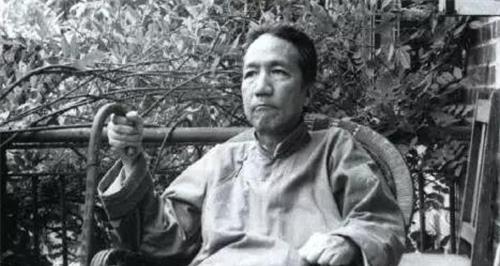Not long ago, the author found a copy of Chen Yinke's "Hanliutang Collection" in the library, but he was shallow in learning, did not understand literature and history, did not understand poetry, and did not understand Buddhism, so he picked a simple look, that is, "The Tale of Cao Chong Huatuo and Buddhism in the Three Kingdoms".

If you don't understand Chen Yinke, then you must understand Cao Chong and Hua Tuo, after all, both of them are very famous figures, Cao Chong said that Xiang and the divine doctor Hua Tuo are household names, so what does the two people have to do with Buddhism? Why does Chen Yinke say that Hua Tuo is Indian?
Chen Yinke's "Three Kingdoms Chronicles Cao Chong Hua Tuo Zhuan and Buddhist Stories" is a study of the Miscellaneous Treasures of the Northern Wei Dynasty, but the "Miscellaneous Treasure Classics" were written 200 years later than the date of Cao Chong's elephant, and the things recorded above are all described through other people, thus denying Cao Chong's title of elephant.
So what is the relationship between Hua Tuo and Buddhism? Chen Yinke was born in a family of Chinese medicine, but he has always maintained a resistance to Chinese medicine, and he once scolded: If you think that you are the essence of the country and ride on foreign medicine, you are ignorant of the history of our country's medicine.
Chen Yinke does not believe in some of the yin and yang theories of Chinese medicine, and Western medicine is reasonable, a bit too much to say, on the other hand, Hua Tuo, Chen Yinke also does not believe that history has Hua Tuo, his legend is too mythical, according to Chen Yinke's research, Hua Tuo's Chinese pronunciation is similar to the Tianzhu pronunciation of "agada (medicine Luohan)".
Tianzhu is today's India, that is to say, from the pronunciation point of view, it is barely possible to classify Hua Tuo as the medicine god of India, but Chen Yinke is a well-known historian, and the pronunciation alone will not be judged casually, and it is recorded in the "Explanation of Words and Words": With a horse to lose the thirty solar eclipse.
This means that Hua Tuo's footprints in practicing medicine are all over the world, and the birth of Hua Tuo is a mystery, according to historical records, he was born in the first year of Han Yongjia (145 AD), but the "Later Han Shu Hua Tuo Zhuan" has a record: he is a hundred years old, and he is still strong, and people think that he is immortal, that is to say, when he was more than 160 years old, he still maintained a face of more than 60 years old.
Hua Tuo's age is obviously wrongly recorded, as for the place of birth suspicion is even more, but it is agreed that he was born in Anhui, and Cao Cao is a fellow countryman, but Chen Yinke used another speculation method, Hua Tuo invented a kind of hemp boiling powder, but before the appearance of hemp boiling powder, there was a medicine god Qi domain in India, he invented Hu medicine before Hua Tuo, And Hu medicine is very similar to Hemp Boiling Powder.
Chen Yinke quoted the "Buddha Said Nai Nu Qi Domain Karma Sutra" to prove that Hua Tuo was an Indian, Qi Domain and Hua Tuo were figures of the same period, the two were proficient in medicine, Hua Tuo traveled all over the country, so Qi Domain is Hua Tuo, because of Han Buddhism, Qi Domain was called the God of Medicine during the treatment of diseases, and the medicine god of India was Hua Tuo.
However, Cao Cao was suspicious and believed that Hua Tuo had opened his skull to take his life, so he imprisoned him and ordered his medical books to be burned, although Hua Tuo handed over his life's learning to a prison servant, but there was still very little medicine that survived.
As for Chen Yinke saying that Hua Tuo is An Indian, I have to say that it has opened up a new line of thinking for the historical circles, Chen Yinke, as a scholar, should also have such a courageous spirit of questioning, if even the doubts are lost, the scholars will not just read the script.
Is the divine doctor Hua Tuo not a Chinese, but an Indian? This is not said by Indians, but Chinese